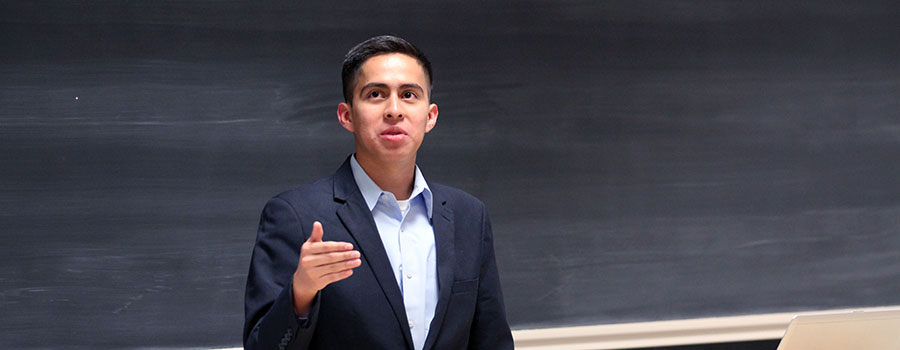Speech & Debate

Debate is the League’s longest-running contest, dating back to 1910. A small group of debate coaches met in Abilene and enthusiastically began an interscholastic forensic program to motivate their students and provide them with a practical application for the skills they were developing. It was then that UIL was born. Ten teams representing ten divisions of the state competed in the first state tournament. Over one hundred years later, the UIL Cross-Examination Policy Debate State Meet is celebrated as the largest high school debate tournament in the nation.
At the first state meet, educators voted to add declamation as a state-qualifying contest. Since that time, the League has expanded speaking competition to include two debate contests, two public speaking contests and two oral performance contests and congress. Thousands of students from across the state of Texas compete each year in Cross-Examination Debate, Lincoln-Douglas Debate, Congress, Extemporaneous Informative Speaking, Extemporaneous Persuasive Speaking, Prose Interpretation and Poetry Interpretation.
Speech & Debate News & Updates
CX Meet Directors
Spring 2026 LD topic released
The UIL LD Debate topic for Spring 2026 is officially released:
Spring 2026 LD Debate Topic
State Congressional Legislation
Legislation for all conferences is now posted.
- “Important Message: Additional legislation will be posted on each State docket so be sure to return to this webpage again for new bills and resolutions that will be debated at the State Meet. Dockets for State will have a total o 20 pieces of legislation — 10 for prelims and 10 for finals."
Speech Events:
UIL Writer’s Study Report becomes National Policy Topic for
2024-2025
by Jana Riggins - Jan. 26, 2023 (State Director of Speech, Debate, Congress)
High school debaters during the 2024-2025 forensic season will research and debate the topic area developed by Winston Churchill Director of Debate coach Preston Stotle. “The United States federal government should significantly strengthen its protection of domestic intellectual property rights in copyrights, patents, and/or trademarks.”
Stotle spent nine months developing and later defending before the National Federation of State High School Associations’ national debate topic selection committee his study report.
Five topic areas were selected by the committee in August to be placed on a national ballot in October. The results of that initial vote narrowed the selection down to two debate areas: nuclear weapons reduction and intellectual property rights. Thirty-eight states and four national organizations participated in the voting process that ultimately selected Stotle’s topic by a vote of 25-17.
Speech and Debate: Opportunity Should be Provided for All Students
by Mellessa Denny - Oct. 26, 2017 (UIL Coach, Amarillo HS)
Debate is an essential opportunity that should be provided to all students. Studies and professional opinions touting the benefits of participation in speech and debate, also known as forensics, are easily found. Students develop skills in research, critical thinking, organization, persuasion and communication.
Speech and debate students see tangible benefits from participation while in school – confidence in speaking situations, spontaneity in interviews, improved writing in other courses, diverse perspectives. These skills also benefit the student after high school.
Annual speech coach registration
Should be completed at the beginning of each school year.






